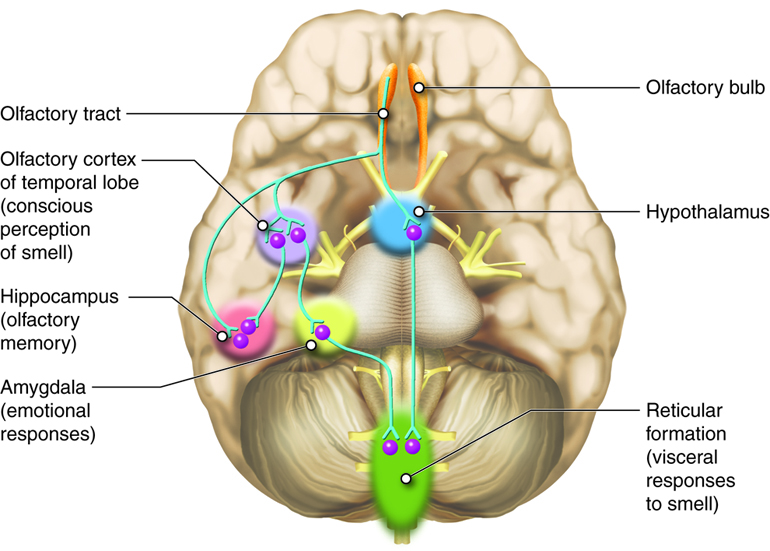Sleep Is Important for the Brain as it’s a profoundly vital biological process. It’s not merely a period for the body to rest; it’s also essential for the brain’s repair, reconstruction, and the crucial processing of information. Without adequate sleep, brain function can be severely disrupted, leading to a decline in memory, attention, and decision-making abilities. Consistently getting good sleep also helps maintain mental health and significantly reduces the risk of various neurological diseases. During sleep, the brain consolidates the information acquired throughout the day and efficiently prunes unnecessary data, thereby opening pathways for new learning and improved cognitive function.
Sleep Is Important for the Brain because a lack of it places significant stress on brain cells and escalates inflammation. Chronic sleep deprivation progressively weakens brain function, subsequently increasing the risk of neurodegenerative diseases such as Alzheimer’s and dementia. During sleep, harmful proteins like beta-amyloid are cleared from the brain, playing a vital role in preventing the development of these debilitating conditions. Furthermore, sleep strengthens the brain’s neural circuits, which are indispensable for effective learning and memory retention. Adequate and quality sleep is therefore fundamental for a healthy brain and a fully functional, thriving life.

Enhanced Memory and Learning Capabilities
Sleep Is Important for the Brain as it’s an indispensable process for enhancing memory and learning abilities. When we sleep, the brain actively processes all the information acquired during the day, converting it into long-term memories. This crucial process is known as memory consolidation. During sleep, particularly in the deep sleep and Rapid Eye Movement (REM) sleep stages, a significant exchange of information occurs between the brain’s hippocampus and neocortex. The hippocampus temporarily stores data, and REM sleep facilitates its transfer to the neocortex, where it’s stored permanently. For instance, after learning a new language or acquiring a new skill, sufficient sleep helps to embed that information firmly in the brain. Lack of sleep disrupts this process, which increases the tendency to forget learned information and and diminishes the capacity to learn new things. Research consistently shows that individuals who get enough sleep after learning something new perform significantly better than those who do not.
Removal of Brain Toxins:
Sleep Is Important for the Brain because it performs the crucial task of cleaning and revitalizing itself during this period. Throughout the day, the brain’s activity generates various toxic byproducts, one of the most prominent being beta-amyloid protein. The accumulation of this protein damages brain cells and is considered a primary contributor to Alzheimer’s disease. During sleep, the brain’s glymphatic system becomes highly active. This system expands the spaces between brain cells and significantly increases the flow of cerebrospinal fluid (CSF). The CSF effectively helps to flush out these toxic proteins and other waste products from the brain. When we don’t get enough sleep, this glymphatic system cannot function properly, leading to the accumulation of toxins in the brain and an increased risk of neural damage. Regular, good sleep helps maintain brain cleanliness and reduces the long-term risk of neurodegenerative diseases.

Emotion Regulation and Mental Health:
Sleep Is Important for the Brain for its profound impact on emotion regulation and overall mental health. When there isn’t enough sleep, the brain’s amygdala, which is responsible for processing emotions, becomes overactive. As a result, individuals may feel more irritable, anxious, and generally distressed. Lack of sleep also diminishes the effectiveness of the prefrontal cortex, which plays a vital role in controlling emotions and making rational decisions. Consequently, individuals may become more impulsive and less capable of effectively coping with challenging situations. Chronic sleep deprivation significantly increases the risk of emotional stress, anxiety, and depression. Conversely, adequate sleep helps maintain the brain’s chemical balance, particularly influencing the production and regulation of neurotransmitters like serotonin and dopamine, which directly affect our mood and mental state. Good sleep provides the necessary energy to maintain our mental stability and effectively cope with daily stressors.
Enhanced Brain Performance and Attention:
Sleep Is Important for the Brain for its overall performance, especially regarding attention, concentration, and decision-making abilities. When we don’t get enough sleep, the brain’s frontal lobe, responsible for these higher cognitive functions, cannot operate optimally. This leads to difficulties in concentrating, an increased tendency to make mistakes, and a reduced capacity to solve complex problems. Fatigue and sleep deprivation also slow down the brain’s reaction time, which can be dangerous in everyday activities such as driving or participating in important meetings. Adequate sleep strengthens the neural connections within the brain and significantly improves the flow of information between nerve cells. It enhances the brain’s alertness and cognitive flexibility, helping us adapt to new situations and make quick decisions. Sufficient sleep allows our brain to recharge, enabling us to perform at our best in the workplace or during studies throughout the day.

Sleep for a Healthy Future:
The discussion above clearly demonstrates just how essential Sleep Is Important for the Brain. It’s not merely a period of rest, but a vital process for the brain’s repair, reconstruction, and overall functionality. Adequate sleep is indispensable for enhancing memory, removing toxins, regulating emotions, and maintaining comprehensive brain function. In modern life, the pressures of work, excessive digital screen use, and social commitments often curtail our sleep time. However, it’s crucial to remember that compromising on sleep can be detrimental to our physical and mental health in the long run. For healthy brain function and a productive lifestyle, every adult should aim to ensure 7-9 hours of quality sleep per day. Prioritizing sleep is a wise investment in a balanced life and a healthy future. It will help enhance our performance, reduce stress, and ultimately make life more enjoyable.

Pingback: 10 Shocking Plastic Pollution Ocean Facts You Didn’t Know